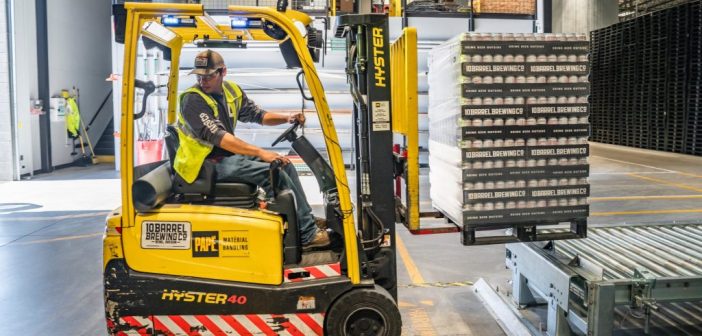Dorset Chamber President Liz Willingham speaks to BH Living about her vision for the future and how the Dorset Chamber of Commerce and Industry (DCCI) are involved in helping to shape a ‘Dorset Industrial Strategy’

DCCI’s Liz Willingham
BHL: Dorset LEP is currently developing its Local Industrial Strategy (LIS), what types of consultation have you had with them?
LW: In my role as President of the DCCI, I frequently speak to our members about trading conditions, the issues they face, both the opportunities and barriers for businesses and of course the economy in general. Dorset Chamber has also been working closely with Dorset LEP in the Local Industrial Strategy consultation and helping facilitate discussions.
All LEPs have been tasked with pulling together local industrial strategies, plans that will support economic growth in their respective geographical areas. This represents a great opportunity to see how we can both build on our strengths and opportunities but also seek to address barriers to growth and challenges for businesses in Dorset.
BHL: The national economy is in a state of worry at the moment, how is this affecting LIS planning?
LW: It’s been a challenging time; we’ve seen growth in the economy at a national level grind to a virtual halt whilst at the same time we are experiencing record employment. Businesses have also been trying to navigate their way around Brexit and in our view, are totally exasperated by the current situation. On a local level, it’s difficult to draw a clear line in the sand on how businesses are doing; some businesses will tell you trade has never been stronger, others report the climate to be challenging. However it is clear that Dorset businesses are resilient, innovative and adaptable.
BHL: Dorset is an anomaly among counties, offering lots of rural area whilst also hosting plenty of large towns, how will the LIS adapt to this?
LW: The promotion and emphasis of the natural assets of Dorset in both the rural and urban parts of the county, has to be a priority. The quality of life and environment is highly valued within the business community in Dorset just as it is being recognised globally as important in supporting work/life balance and the wellbeing scenario. Dorset is both a fantastic place to work and live.
Interestingly the importance of the value of our natural environment came through very strongly at a recent LIS consultation meeting in a school, where the young people felt it was extremely important to protect the environment and this should not be eroded by over-development.
BHL: What are the main issues facing businesses in the area?
LW: Probably the number one issue that businesses raise is their challenges in finding staff. With unemployment at its lowest for 45 years, it’s a candidates’ marketplace. This applies to skilled, semi-skilled and unskilled roles. Employers repeatedly tell us they cannot fill vacancies. This is often referred to as a skills shortage. I think it’s also a shortage of people given we have virtually full employment. This means businesses need to work harder to attract and retain good people; this is through pay, terms and conditions, their values as a business and the benefits they offer.
The cost and availability of housing is an important issue within this. Surveys by Dorset Chamber regularly identify that up to 30% of employers state that the cost of housing is a barrier to business growth. Businesses need the staff to move in to Dorset to help their businesses grow – and high housing costs are a barrier to this. The LIS needs a clear focus on affordable housing solutions.
BHL: Bournemouth hosts two excellent universities and a university college, did this come up in discussions?
LW: There is a widespread concern that we lose many of our talented young people to other areas. Graduate retention is a real problem and young people leave the area when their studies are complete and move to places they may see as more vibrant such as Manchester, Bristol and London. We need to have a clear focus on strategies to keep these talented young people in the area. A point that has been strongly made within this is the need for improved and exciting cultural activities and leisure attractions, making the area more desirable for young people as opposed to just families and the older generation.
BHL: How important is reliable access to finance?
LW: Access to finance is often reported as a concern for businesses seeking investment to grow. Businesses that are often sizeable and established with strong credit ratings can often struggle with access to finance through the traditional routes. Whilst the banks will all tell us they are lending, they can be very averse to certain sectors. We aren’t talking about access to finance for a business in financial difficulty; access to finance is often a real challenge for businesses seeking finance to invest in growth, improve capacity, employ more people and improve productivity. There needs to be better financial support for those businesses seeking to drive growth, productivity and employment.
Following this, many businesses in Dorset would benefit from increased support for businesses with real growth potential; support around areas such as strategies for growth, planning, new technologies and access to finance as mentioned. A funded high-growth support service, focusing on those businesses that have the potential to increase their GVA and increase employment would benefit many businesses in Dorset. A great deal of focus is placed on start-ups and smaller businesses and we would like to see greater emphasis on support for those high-growth potential businesses.
BHL: What improvements could the local area make to become a better place for businesses?
LW: A major focus within the LIS needs to be around sustainable transport solutions for the conurbation. Our road infrastructure is at breaking point and extremely fragile. One accident or roadworks cause incredible congestion making travel, particularly during peak times, a huge problem for employees and business owners alike. It’s difficult to see a real solution to this in terms of the infrastructure. Of course, we need investment in the road network but also in air and rail.
BHL: How can technological advancements better support our economy?
LW: We need to encourage employers to take innovative steps where possible to reduce traffic levels with measures such as home working/ better use of technology and staggered start and finish times. Broadband strength and the application of digitally innovative ways of working should be positioned as a priority to try and counter the castrating road network issues we face.
BHL: How is Dorset Chamber helping progress the LIS?
LW: The Local Industrial Strategy offers us a tremendous opportunity to develop a plan for Dorset that has a focus on addressing these issues, that build on our strengths and offers innovative ideas for addressing our challenges. Dorset Chamber is supporting Dorset LEP with this consultation and we would encourage all business owners to get involved. Your feedback and ideas around solutions is vital. The next generation of business leaders and their teams will thank us for it.


